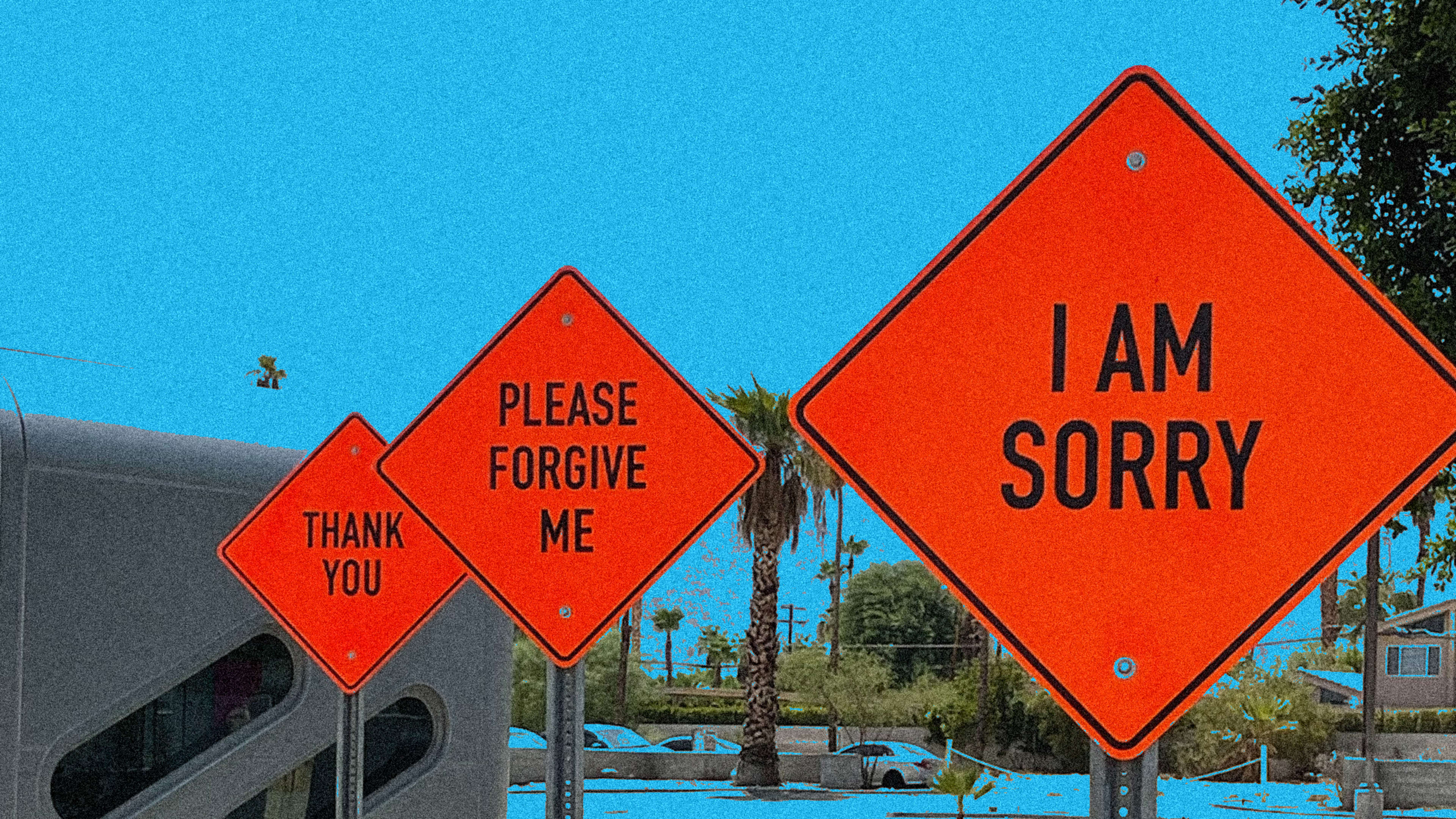Once in a performance review, I received feedback that my peers and direct reports didn’t think I was confident in the initiatives I was leading. I found this surprising. Over the years, I had been working hard to build up my confidence, to use my voice, and to showcase my expertise. I couldn’t understand where this feedback was coming from. So I approached a trusted colleague for help.
“Honestly,” this colleague said to me over a cup of coffee. “You apologize way too much. You need to stop being so sorry for everything. Including the fact that it’s raining outside.”
So I started to pay attention to how often I apologized. I once counted that I said “I’m sorry” 10 times in a single day. That means I may offer over 3,000 apologies per year—often for things I am not really even sorry for. Often when I didn’t actually do anything wrong. I was tired of saying I am sorry, but I didn’t know how to stop myself from offering this fake apology.
Since my colleague’s eye-opening insight, I have been on a journey to stop constantly apologizing. Here’s the advice I offer to anyone who is concerned that saying “I am sorry” too often could be damaging their leadership brand:
Find replacement phrases
Growing up as the child of Indian immigrant parents, my parents emphasized the importance of going above and beyond to make others around you feel comfortable. To make sure others were supported, cared for, and their needs were met. Even if you weren’t responsible for what may have occurred: the heat wasn’t working, we were out of tea, or someone backed into our car and it was somehow our fault, we were still quick to apologize. I brought my need to apologize at home constantly into corporate America.
Now, I have go-to phrases to substitute for “I am sorry.” Because I will no longer apologize for the weather, technology glitches, or the office being out of coffee. If I am late for a meeting, I say, “Thanks for waiting. My boss needed to see me.” If the technology isn’t working or the Zoom audio won’t connect, now I say, “Appreciate your understanding as we work to fix this technical glitch.” If someone shares with me a mistake I made, now I say “Thanks for pointing that out . I’ll make sure to fix it and incorporate your feedback.” If a client is visiting and we are out of coffee I say, “Looks like we are out of coffee. We can make some or take a quick trip to Starbucks and chat along the way.”
Get comfortable saying “no”
From the very beginning of my career, I was always taught to say “yes.” I would say “yes” to more projects, to working on the weekends, and to rescheduling my vacation to cover for someone else. I didn’t know how to say “no.” And if I had to say “no” for some reason, I would profusely apologize. As I have grown in my career, and gained more responsibility, I earned the right to say “no.” And yet, I still clung to “I am sorry.”
Now, I say “no” when I need to say “no,” instead of saying “I am sorry.” If someone asks my team to take on more work I now say, “Thanks for thinking of us. We will have to say no to taking that on at this time, and can revisit next quarter our priorities.” If someone invites me to speak on a panel and I can’t make it, I now say, “That sounds like an amazing opportunity. I will have to say decline, and I have a friend who would be a great panelist. May I make an introduction?” And finally, if someone asks me to help mentor someone I don’t know and I don’t have time, “Unfortunately, no, I won’t be able to mentor this individual. I have recommendations of three communities where they can get access to mentors. I am happy to pass that information along.”
Save your apologies for when you truly mean it
Perhaps my biggest question I asked myself was, if I was apologizing up to ten times a day, then did my real apologies carry any weight? What would happen if I really caused hurt or harm to an individual? Would anyone actually believe I was sorry if I said “I am sorry” all the time? By overusing “I am sorry” I had unknowingly devalued the meaning of that powerful phrase.
Save your apologies for when you truly mean it. Because there’s a reason we say “I am sorry.” It is when we have recognized we have done something wrong. Maybe we unknowingly hurt a colleague’s feelings at work, we were insensitive to what they were facing at home, or indifferent and dismissive to their workload. Those are the moments in which we need to be accountable and responsible and deliver a heartfelt apology. And show up to do better and be better. Remember that apologizing constantly can negatively impact your leadership brand. When you do apologize when you mean it, you show up as the leader your team deserves.
Mita Mallick is a diversity and inclusion leader. Currently, she is the head of inclusion, equity, and impact at Carta.
Recognize your company's culture of innovation by applying to this year's Best Workplaces for Innovators Awards before the extended deadline, April 12.
